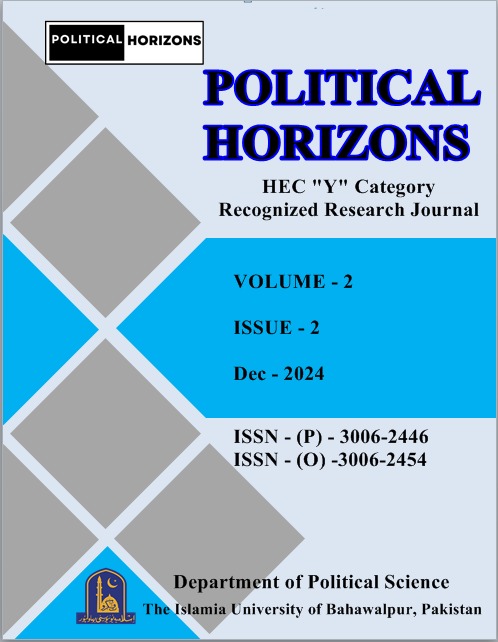Socio-Cultural Transformation in the Institution of Family in Pakistan
Abstract
The present paper attempts to analyze the changing dynamics of family structure and dynamics in Pakistan during the last couple of decades, with a special focus on socio-cultural transformations. It investigates the shifts brought forth by these agents within family systems under the impact of urbanization, economic change, and globalization. It traces a shift from the joint to the nuclear family structure, changing marriage practices, evolving gender roles, and tensions between traditional values and modern aspirations. It pulls in historical perspectives as well as contemporary research to reveal its argument that these changes pose a host of challenges and opportunities for Pakistani society. It contends that while many of the conventional elements in family life remain, the major transformations in family functions and forms are changing Pakistan's social relations and personal identity.
Keywords: Family structure, Socio-cultural transformation, Marriage practices, Gender roles, Joint family system.

Downloads
Published
How to Cite
Issue
Section
License
Copyright (c) 2024 Amna Rasool

This work is licensed under a Creative Commons Attribution-NonCommercial 4.0 International License.




